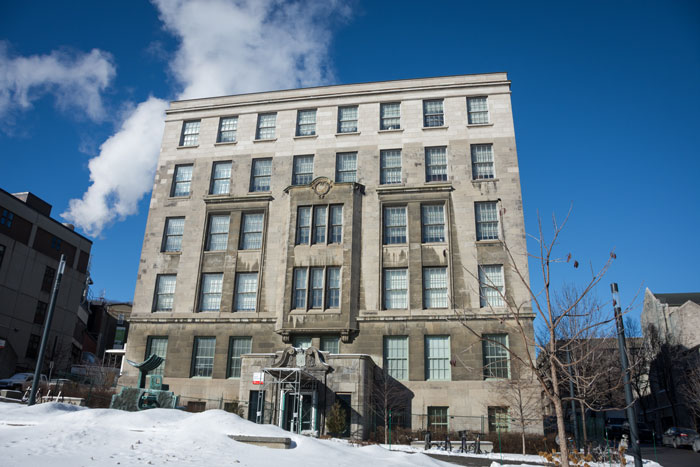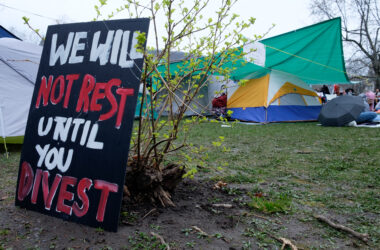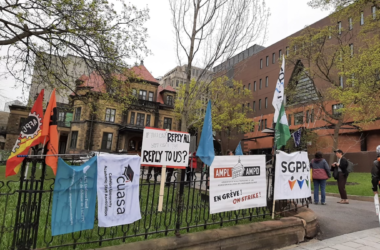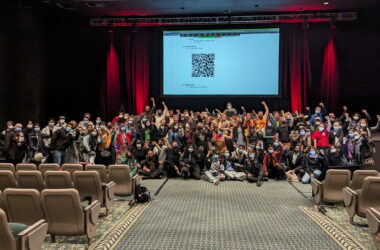Following a campaign led by students since at least 2018, the McGill Senate approved a motion to establish a Fall Reading Break for the Fall 2021, 2022, and 2023 semesters during its meeting on Nov. 18.
In Fall 2021 and 2022, the break will consist of a two-day extension to the Thanksgiving weekend, for a total of five days, including the weekend. In 2023, the extension will be for three days, with plans for a longer break in the four subsequent years. Unlike other universities and colleges, the break will not last an entire week until at least 2024.
Gillian Nycum, university registrar and executive director of Enrolment Services, recognized the work done by students in establishing the break.
“This was an initiative that really came out of student advocacy,” Nycum said. “[It was] a collaboration between staff, faculty, and students to engage in consultations to come up with a proposal for a Fall Reading Break.”
Nycum also acknowledged why the decision took several years, citing disagreements on how to best reorganize the academic calendar.
“This isn’t a new conversation,” Nycum said. “Earlier conversations about how to make space in the Fall calendar for the Fall break didn’t lead to agreement on how to maintain contact hours.”
The Senate also addressed a set of questions put forward prior to the meeting by student senators regarding Principal and Vice-Chancellor Suzanne Fortier’s Oct. 26 message on Academic Freedom and Inclusiveness. The statement was inspired by recent controversy at the University of Ottawa, which sparked debate over the limits of academic freedom and the need to protect BIPOC students on university campuses. Some students and student groups, including the Black Students’ Network (BSN), took issue with Fortier’s failure to condemn the use of racial slurs in lecture halls or other academic contexts at McGill and demanded an apology for the statement.
The questions’ preamble noted ambiguities in McGill’s policies regarding the limits of academic freedom, and the questions themselves highlighted concerns regarding lack of transparency in how exactly the university plans to maintain a respectful environment within the classroom.
Provost and Vice-Principal (Academic) Christopher Manfredi argued that academic freedom cannot act as a license to engage in misconduct under any McGill policy. In response, Students’ Society of McGill University (SSMU) Vice-President University Affairs Brooklyn Frizzle noted the limits of his answer.
“Many of the university’s policies which govern conduct come with the caveat that they cannot be applied to restrict academic freedom,” Frizzle said. “[Senator Manfredi] mentioned The Policy on Harassment and Discrimination Prohibited by Law, which specifically states that it cannot be applied to abridge academic freedom.”
Neither Manfredi nor Associate Provost (Equity and Academic Policies) Angela Campbell were clear regarding how they intend to address such ambiguities to protect marginalized students.
Arts Senator Darshan Daryanani asked Manfredi why the university would not ban the use of offensive words before a student is hurt by their use. In response, Manfredi argued that such a solution would not be productive.
“Trying to construct an a priori list of words that are banned in the classroom, even if we can identify many words whose utterance in a classroom setting would be unlikely to be justified, would be a mistake for the university,” Manfredi said.
Soundbite
“Something that has become clear to us, as it has become clear to all universities, is that Fall 2021 is unlikely to look like Fall 2019. The pandemic is unlikely to have left us completely. But at the same time, it cannot [look like] Fall 2020. The toll it is taking on people is too high, and it calls on us to figure out how we can achieve more interactions while keeping our community safe.” – Principal and Vice-Chancellor Suzanne Fortier.
Moment of the meeting
When discussing the Principal and Vice-Chancellor’s statement on Academic Freedom and Inclusiveness, SSMU Arts and Science Senator repeatedly asked Senator Manfredi whether McGill would condemn the use of racial slurs in lectures. He failed to answer the question on McGill’s behalf but acknowledged that he could not imagine a situation where such language would be appropriate.










